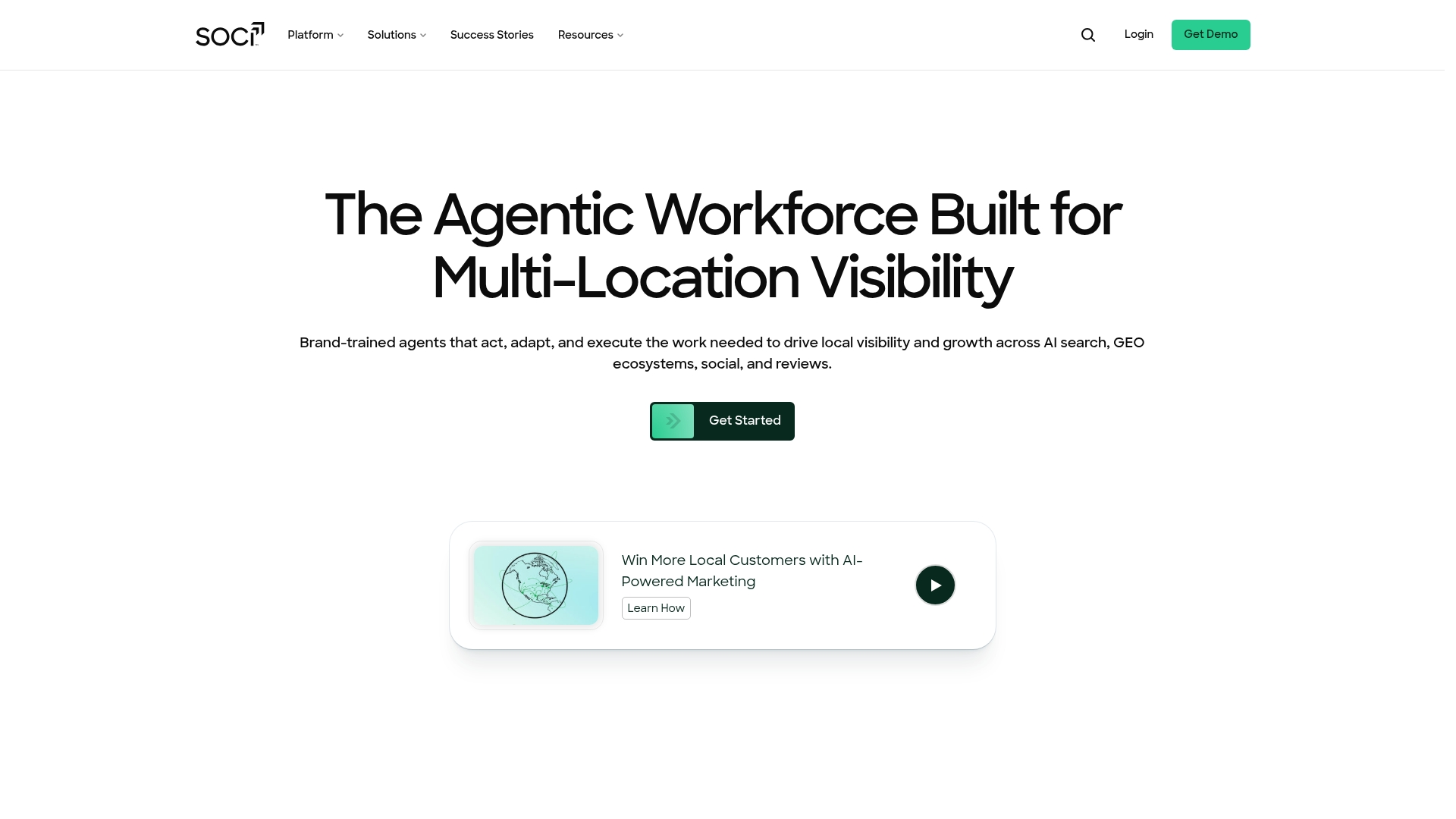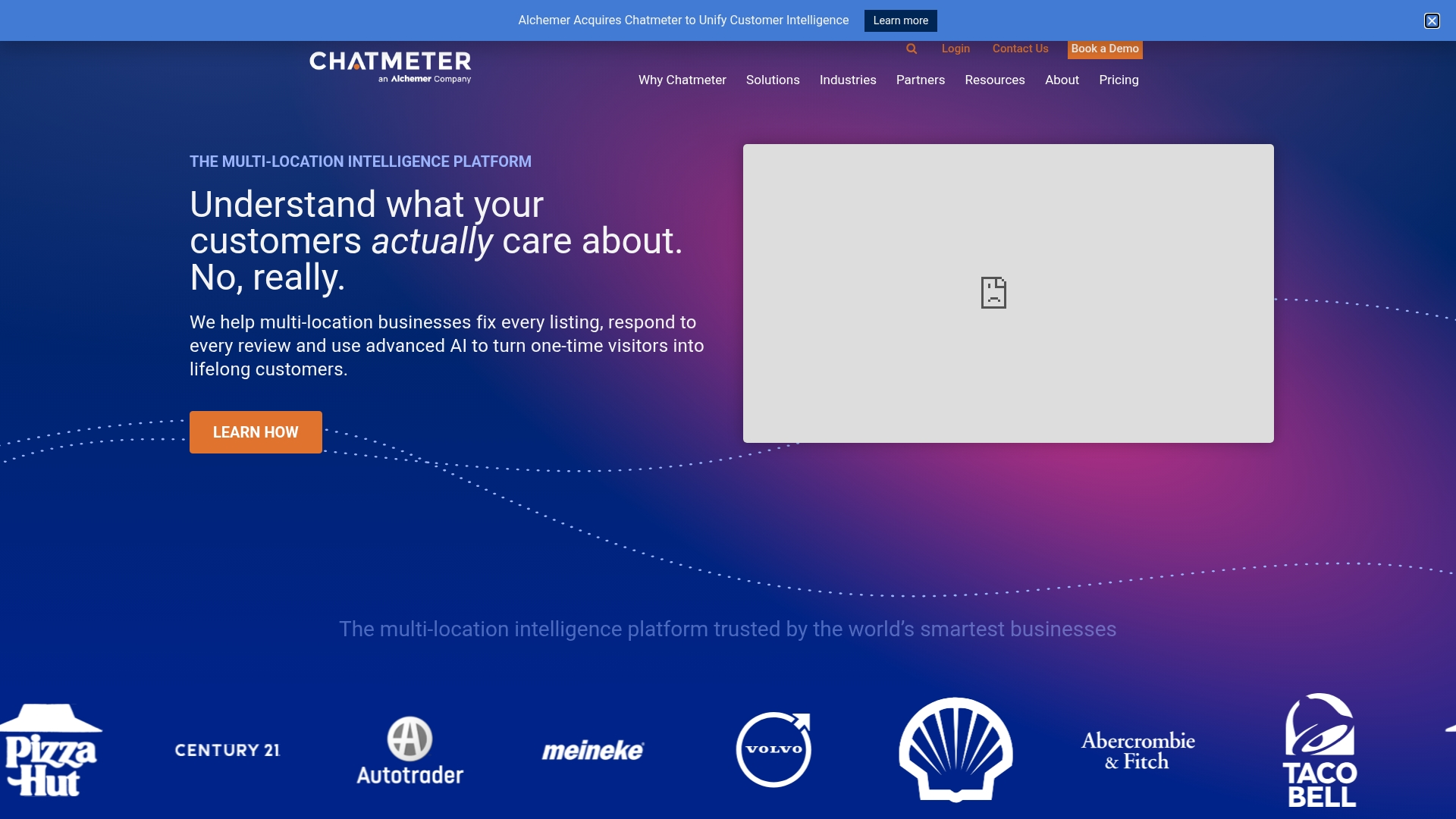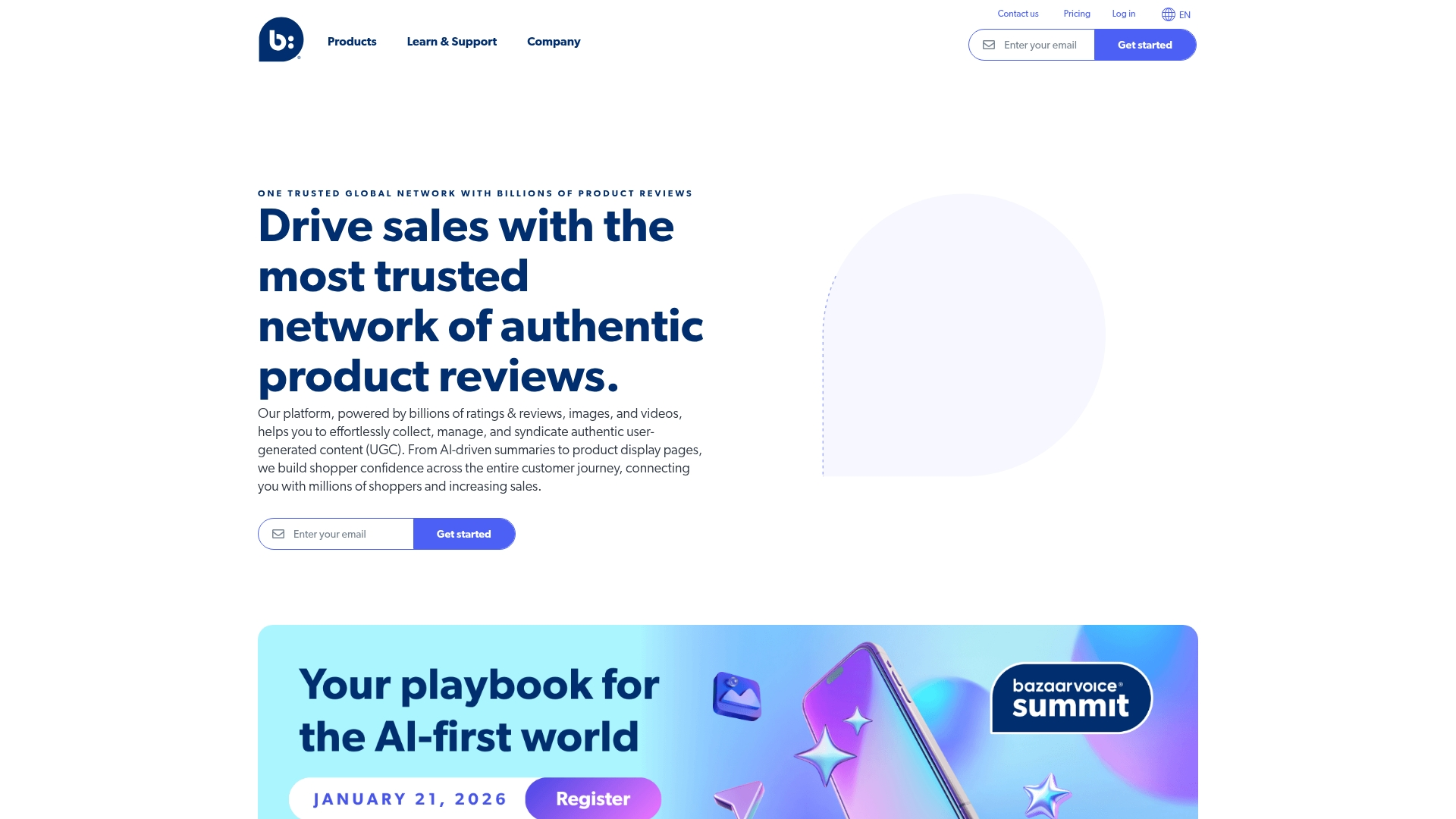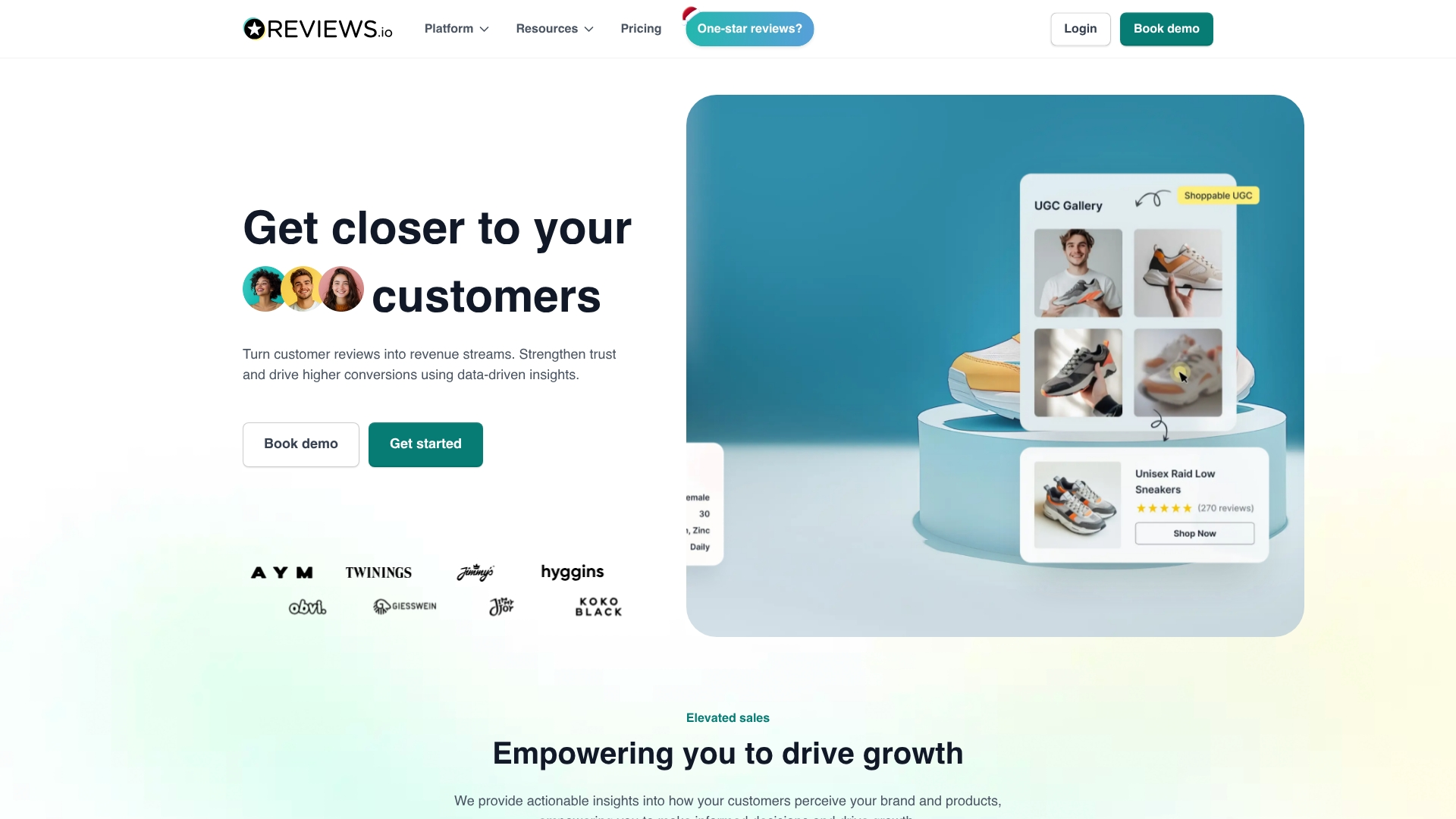How to find the best review management software for your business

Table of Contents
Whether they’re singing your praises or giving constructive feedback, paying attention to customer opinions is important because they’re your biggest brand advocates.
But with thousands of reviews online across several platforms, monitoring and responding to feedback by hand is time-consuming. Selecting the right software for your brand is just one puzzle piece to your online review management strategy.
What is a review management software?
Review management software supports brands in collecting and responding to customer feedback faster while also discovering actionable business insights. It supports you in executing your review management strategy with efficiency, leading to improved customer satisfaction and a better understanding of their needs and preferences. Implementing review management software is an important step toward improving your reputation and increasing business results.
In today’s competitive landscape, brands that stay ahead are customer-centric and data-driven. Online review management software lets businesses master both. Delight your customers with swift responses to their reviews to foster a sense of appreciation and loyalty. Also, analytics provide you with an unparalleled understanding of what your customers want and how you can better serve them in the future.
Why do brands need review management software?
Reviews provide a valuable feedback loop that businesses can leverage to improve their products and services, but there are several other reasons brands should implement review management software.
Quicker responses
According to The Sprout Social Index™, nearly three-quarters of consumers expect brands to respond within 24 hours on social. And taking too long to respond has consequences—73% say they will buy from a competitor next time if they don’t get a response through social.
This consumer expectation of timely responses extends to reviews as well. A BrightLocal report shows 88% of consumers are likely to use a brand that responds to positive and negative reviews.
Build trust and credibility
Consumers are looking for genuine, authentic feedback about businesses online. While positive reviews persuade consumers to purchase a product or service, negative reviews support brands in growing social proof. A balanced mix of reviews can increase credibility, and thoughtful responses to negative reviews can demonstrate accountability and customer care.
Brands need to build and maintain a presence on review sites their customers are using, especially those that are prioritized by search engines. This requires not only responding to reviews, but also understanding how different sites present and manage those reviews. For instance, Google’s review system aims to reward high quality user reviews, but the system also evaluates articles, blogs and ratings from review websites.
Learn more on how to manage reviews on a Google Business Profile.
Multichannel and multi-location management
Facebook Reviews, Yelp, Glassdoor, Google Reviews—there are a lot of review platforms available for consumers to provide feedback. When you have a sea of opinions flowing in across multiple channels and locations, it’s easy to get caught up in the tide with manual monitoring.
But a good review management software does the work for you by collecting reviews across various platforms and aggregating the data into one place. This supports brands in mining and analyzing data to streamline their response protocol. When all your reviews are located within one platform, it’s easier to monitor, respond and improve your review management strategy.
Gain business insights
A review management software gathers positive and negative feedback to pinpoint opportunities for improvement. For example, if many customers mention the same glitch in Google Play or App Store reviews, the product development team uses this information to create a fix.
Competitive intelligence
Some review management software aggregates competitor data to evaluate how your brand measures up to other businesses within your market. Access to competitor analytics supports you in further identifying opportunities for growth and gaps to fill with your review management strategy.
Collaborative efficiency
Review management software supports teams in addressing reviews across multiple platforms and locations faster. A collaborative workspace for review management increases efficiency, whether it’s for sharing insights or crafting response templates.
Marketing assets
Brands feature positive reviews and testimonials to build their brand reputation. Incorporating reviews into marketing assets can help brand awareness and increase conversions, especially since it’s the type of content consumers like to see from brands. The Index found that 39% of consumers want to see customer testimonials or real customer demos.
Choosing a software that complements both your review management and reputation management strategies increases efficiency and brand awareness.
Top 12 review management software in the market
Here’s an overview of some of the top review management software in the market:
1. Sprout Social
Choosing the best review management software depends on your business needs, and we believe Sprout Social is the right choice for your brand.
Sprout Social integrates with some of the top review platforms in terms of volume and reach, including channels like Google, TripAdvisor, Yelp, Glassdoor, the app stores (Google Play and Apple App Store) and networks like Facebook Pages.

Monitor and respond to reviews across several networks all in one platform, saving teams time so they can focus on actionable next steps.
The Reviews Overview report gives a summary of feedback and includes vital metrics including reply rate and review volume. Along with providing a lens of efficiency, this report serves as a source of business intelligence because it gives a more well-defined picture of reviews and responses. Use these insights to influence other marketing efforts and areas of your business.

2. Podium
Podium uses text messages to help brands manage customer relationships and create an online reputation across several websites.
The platform merges online reviews and other customer interactions in a single dashboard so monitoring and responding is made simple. Users can respond to reviews in real time and send text messages to current and new customers. Podium has a variety of helpful features including sentiment analysis and competitive benchmarking.
3. BirdEye
BirdEye collects reviews from review sites and 150+ different platforms so you can get a comprehensive view of your online reputation. You can organize reviews by filtering (rating number, region, product, etc.) them into custom fields. Similar to the other review management software, it centralizes reviews in a singular platform.
4. Yext
Yext is a reputation management software that has a review management tool. The platform has a centralized dashboard and brand control features to allow administrators to review and manage customer feedback and responses. Yext also offers real-time notifications.
5. Trustpilot
Trustpilot is a customer experience and reputation management platform that allows brands to manage reviews and share and track feedback within a centralized view. The platform offers functionality to manage referrals and create widgets from your strongest reviews. It also offers an analytics dashboard to help track your performance.
6. Reputation
This review management software offers a comprehensive suite for managing online reviews and customer feedback across a wide array of platforms. The interface on the platform is straightforward and features a wide array of functionalities.
7. Sprinklr
Sprinklr provides a Unified Customer Experience Management (Unified-CXM) platform designed for large enterprise organizations. The software integrates review management with social listening, customer care and analytics tools across its supported channels, using AI to deliver insights on customer sentiment and competitive intelligence.
8. NiceJob
NiceJob is a reputation marketing platform that supports brands in automating their review collection process. The platform is designed to turn positive customer feedback into shareable content for social media, using automated email and SMS campaigns to generate a steady stream of new reviews and social proof.
9. SOCi
SOCi is a review management platform designed for multi-location brands that need to manage their online reputation at scale. It provides tools for franchises and distributed teams to maintain brand consistency while responding to local customer feedback.

The platform’s Genius AI agents help streamline on-brand responses, escalate potential risks and drive review generation. With deep integrations for Google Business Profile, Facebook and Yelp, SOCi offers workflows and compliance controls specifically built for the governance needs of enterprise businesses.
10. Chatmeter
Chatmeter is a reputation intelligence platform that connects review management with local SEO performance. It helps multi-location brands analyze customer feedback to find competitive advantages in specific markets.

The platform features competitive intelligence tools for benchmarking performance at the city or location level, and its AI can analyze sentiment and even images within reviews to spot trends. Chatmeter also includes tools for local listings management and review generation to improve visibility and trust.
11. Bazaarvoice
Bazaarvoice specializes in collecting and syndicating user-generated content (UGC) for eCommerce and omnichannel brands. The platform distributes ratings and reviews across a large network of global retailers, increasing product visibility where consumers are making purchasing decisions.

Its primary strength is its extensive retail syndication network, which includes moderation to help block fraudulent content. Brands can use a central portal to monitor and respond to reviews on retailer sites and leverage tools to increase review volume, including syndication to Meta Shops for social commerce.
12. REVIEWS.io
REVIEWS.io is a commerce-focused review platform designed for SMBs and mid-market brands. As an official Google review partner, it helps businesses quickly collect verified reviews to achieve Google Seller Ratings, which can improve ad performance.

The platform uses email and SMS invitations to generate company and product reviews. It integrates with commerce platforms like Shopify and offers a variety of on-site widgets to turn customer feedback into shoppable social proof.
How to find the best review management software
Here are some of the most important features to consider when selecting a review management software:
1. Collaborative workspace
A centralized workspace that’s designed for collaborations, like Sprout Social, supports teams in working cross-functionally from one source of truth. It increases efficiency and enables more effective planning across teams. Plus, synergetic features like automated workflows reduce risk because they add an innate layer of quality assurance.
2. Multichannel
As we mentioned earlier, gathering feedback across various channels is time-consuming. Let the review management software do the heavy lifting and seek platforms that offer multichannel features.
3. Notifications
When you’re viewing and responding to hundreds of thousands of reviews, you’ll need a review management system that offers various notification settings. Also, look for systems that provide the option of delivering notifications in real-time so customers can get timely responses.
4. Integration with other CRMs
A customer relationship management (CRM) software is core to tracking pipeline and revenue, so a review management software should integrate with your existing tech stack to create a unified hub for managing customer and prospect information. Combining your existing CRM with a review management software also supercharges your customer care strategy.
5. Artificial intelligence and automation
As we enter a new era in artificial intelligence, it’s important to consider AI and automation-backed features within review management software. Many review management solutions leverage AI for sentiment analysis and social listening, which can uncover business insights. For example, a social listening query may reveal a common pain point for customers, which can help product teams plan for launches.
6. Multilingual
Choosing an online review management software that is multilingual is an inclusive best practice, especially if you’re looking to cater to an international audience and provide support across cultures.
Sprout Social supports several languages for publishing and inbound messages including English, French, Spanish, Italian and Brazilian Portuguese. Our platform integrates with Google Translate to reduce language barriers and help teams respond more efficiently across languages.

7. Security and privacy
As with any new tool, organizations need to consider security and privacy features when selecting a new review management software. Since reviews involve large amounts of customer data, it’s important for businesses to take the appropriate steps to prevent breaches. For example, functionality to designate access by role and responsibility can fight against potential security risks.
8. Reporting and analysis
Although the reviews themselves consist of qualitative data, you want a review software that offers reporting and analysis tools to help bring even more context to the feedback. Analytics tools can pinpoint trends so teams can optimize their strategies.
9. Scalability and ease of deployment
The review management software should scale with your growth, from market expansion to adding more employees. As new employees join the organization, it helps to select software that is user-friendly and intuitive so they can hop into using the platform after onboarding.
Choose a review management software designed for top platforms
Customer opinions are valuable resources you use to provide a better experience while also improving your overall business strategy. Using review management software makes monitoring and managing customer reviews across channels simple.
To learn more about Sprout Social’s review management tools and features, sign up for a demo.



Share